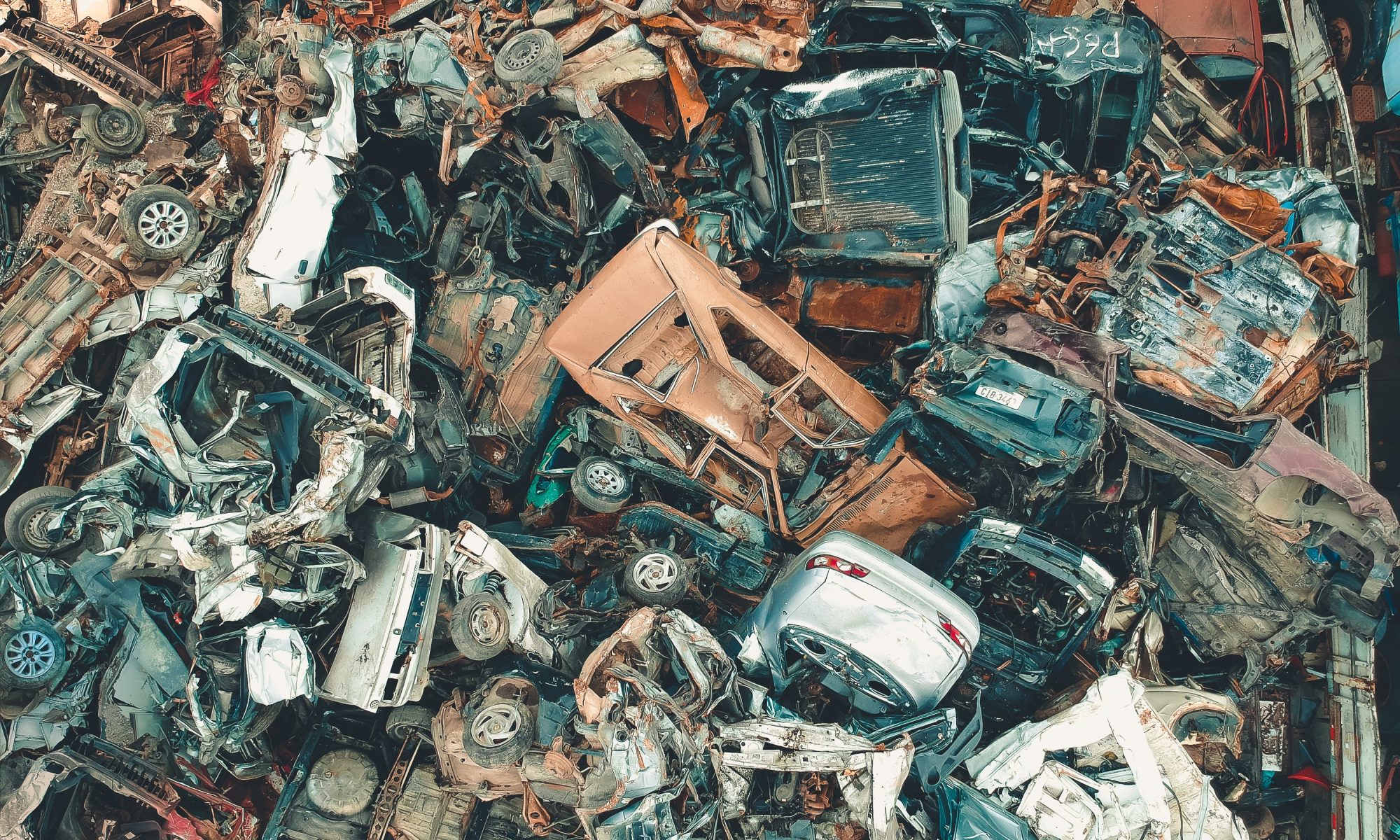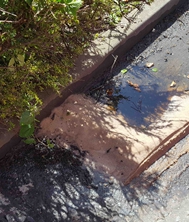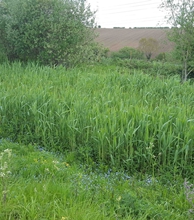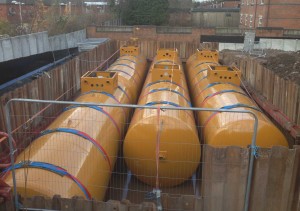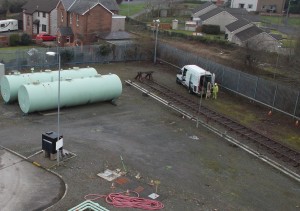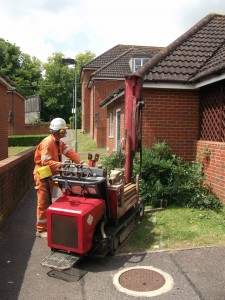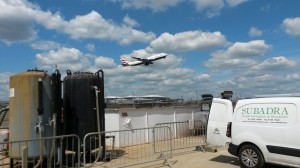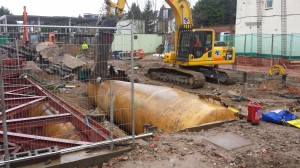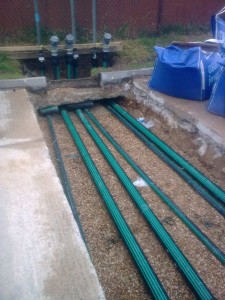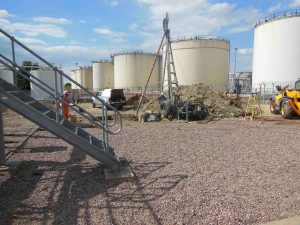
Not that kind of protection! We’re talking about cathodic protection of fuel pipes and tanks.
Decommissioning and replacing defunct cathodic protection ground beds requires an element of precision and brute force. Our first job is usually locating the existing beds. This can be no small task on a 30 hectare oil terminal site! The redundant beds were installed over 30 years ago and records are sparse.
We used radio detection methods to accurately locate the old redundant vertical ground beds to the required accuracy of +/-50mm. We need to be that accurate in order to successfully overdrill the beds.
Unusually, on our most recent project, our client asked us to drill through the connecting cables rather than removing them. The cables were isolated by a field engineer prior to us starting work and all our works were carried out under a permit to dig.
To overdrill the existing beds we brought in a shell and auger rig, drilling 350mm boreholes to 5m depth. This effectively decommissioned the existing redundant ground beds to make way for the new ones. With the first stage of the project complete, we are now back on site with our Comacchio rotary rig drilling much deeper boreholes in which we will be installing new anodes. Updates to follow.
